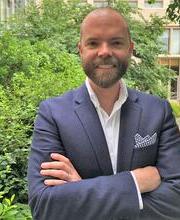Phil Torrey

Philip L. Torrey is the Director of the Harvard Law School Crimmigration Clinic, the Managing Attorney of the Harvard Immigration and Refugee Clinical Program, and a Lecturer on Law at Harvard Law School.
The Crimmigration Clinic engages in appellate litigation and affirmative district court litigation, represents individual clients in removal proceedings, and works closely with non-profit and community-based organizations on policy advocacy. The Clinic’s litigation efforts primarily focus on issues related to immigration detention, crime-based deportation, and the use of local law enforcement resources to enforce immigration law.
Torrey’s research includes the immigration system’s mandatory detention regime, the private prison industry, and the crime-based grounds of removal. His scholarship has been published in law journals, practitioner guides, and online fora including the Harvard Law Review, Michigan Journal of Law Reform, Harvard Latinx Law Review, Immigration and Nationality Law Review, Harvard Law Review for Civil Rights-Civil Liberties, and the Harvard Law and Policy Review. He is also frequently cited in major media outlets including the Washington Post, Boston Globe, U.S. News and World Report, Huffington Post, and National Public Radio.
Torrey explains that many of his clients draw on religion as a source of strength and hope. He says, “During the darkest times in their lives, their belief systems have allowed them to persevere. But, I have also seen how communities can be torn apart through civil unrest and war in the name of religion.” Torrey sees The Religious Literacy and the Professions Initiative (RLPI) as a uniquely important opportunity to critique this dichotomy from both educational and professional perspectives. Torrey is particularly interested in unpacking the historical and contemporary role of religion in our communities, saying, “I am thrilled to become an RPL Fellow and learn from other educators and professionals as well as students who are interested in unpacking the historical and contemporary role of religion in our community as well.”
Torrey hopes that the students he mentors will leave feeling empowered. His goal is to ensure that his students have the tools they need to pursue their own passions independently while also understanding that they have a support system at RPL that is ready to help them achieve success. He shares, “I also hope they learn how to deeply critique systems of oppression—particularly in the domestic immigration space. I think RPL is an exciting opportunity to launch students’ careers and I’m thrilled to be a part of it.”
